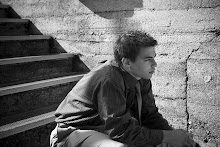An
article at CMAonline, a journal for college media advisers, reported that several colleges have been actively censoring the student newspapers on campus.
Western Oregon University fired a newspaper's adviser after a story ran about the school website releasing sensitive information about a student.
The Student Government Association at Armstrong State University is being sued by the student newspaper after cutting funding and restricting the freedom of the press for the newspaper.
At Brigham Young University, the student newspaper was being chucked into recycling bins after the newspaper ran a story about a rape victim who turned to bulimia.
These stories, along with many others, are common on many campuses. Many lawsuits, funding cuts, and other censorship attempts occur at colleges every year. Many presidents and student presidents do not understand that as long as the college newspaper is reporting the truth, then the newspaper has every right to publish anything it wants.
Although the article did not mention it, it is important to bring up Florida Atlantic University's student newspaper, The University Press. The University Press has had many battles with the SGA. First, they exposed that the SGA increased their wages without informing students. The SGA responded by trying to fire the advisor with a lawsuit and a $5000 fine claiming that he didn't properly choose the editor for the newspaper. Ever since, the newspaper and SGA have been at odds with each other. Recently, the newspaper
exposed that the SGA president had been using his blackberry, paid for by the students, to call his girlfriend 99 times in one month. However, the SGA president refused to acknowledge he had used his phone for personal calls and he attempted to censor the newspaper.
The first amendment to the United States Constitution ensures the rights for the press and Congress is given the charge to respect that right. State schools cannot inhibit that right:
"Congress shall make no law respecting an establishment of religion, or prohibiting the free exercise thereof; or abridging the freedom of speech, or of the press; or the right of the people peaceably to assemble, and to petition the Government for a redress of grievances."
It is of vital importance that colleges allow the college newspaper to have complete like any other newspaper. Some newspapers, like The Independent Alligator, don't recieve any funding from schools so that they don't have to worry about school restrictions. At FCCJ, if President Wallace, or another faculty member, stopped The Campus Voice from publishing a true but disparaging article about corruption amongst the administration, then the school would be breaking the first amendment rights.
That is my rant. What do you guys think?

